Image
Fatigue is a feeling that you're chronically tired - mentally and physically.
It can be caused by a number of factors, including unhealthy lifestyle choices, workplace problems and stress.
There are many different ways you can boost your energy, but see your health practitioner first to make sure you don't have an underlying medical problem.
Food, which gives us energy, is broken down by the digestive system. Some elements, such as water, are absorbed through the stomach. The rest are absorbed through the small intestine.
The body's preferred energy source is glucose, from carbohydrates , but it can also use fatty acids (from fats) and amino acids (from proteins). Glucose is delivered to virtually every cell in the body by the bloodstream, and is then burned with oxygen to produce energy. Hormones control every step in this process; for example, the pancreas makes the hormone insulin, which helps to control blood sugar levels.
If you want more energy, look at your diet and make sure you're following these basic guidelines:
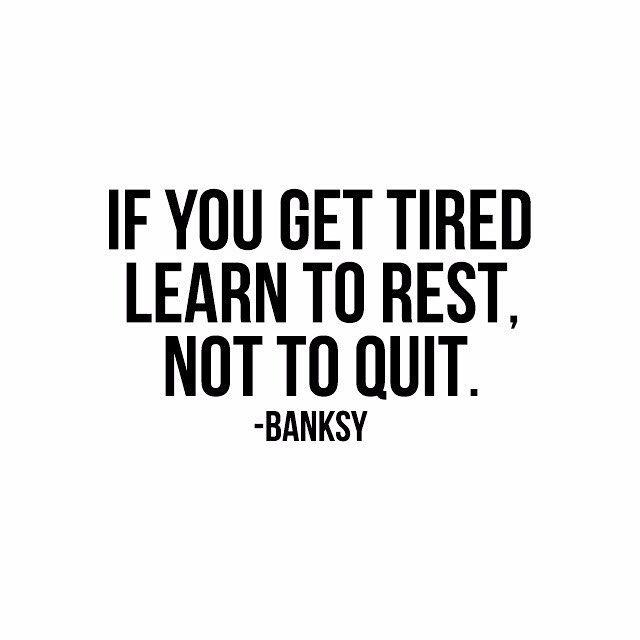
A common cause of fatigue is not enough sleep, or poor quality sleep. Suggestions include:

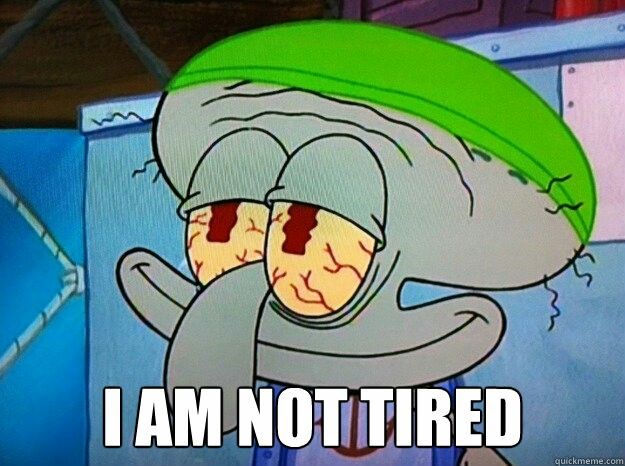 Being active has many healthy effects on the body and mind. It reduces blood pressure, helps to maintain a healthy weight, and is an effective treatment for depression and anxiety. A good bout of exercise also helps you sleep better at night.
Being active has many healthy effects on the body and mind. It reduces blood pressure, helps to maintain a healthy weight, and is an effective treatment for depression and anxiety. A good bout of exercise also helps you sleep better at night.Studies suggest that between 50 and 80% of fatigue cases are mainly due to psychological factors.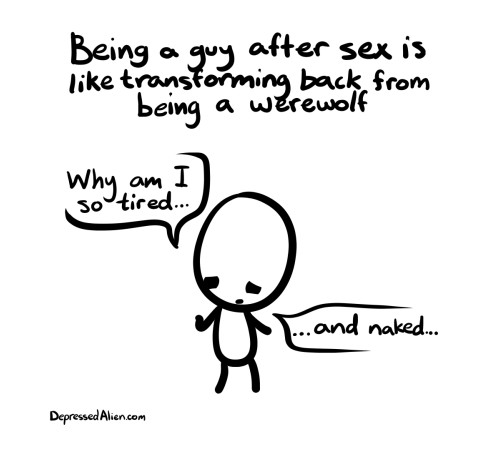 Suggestions include:
Suggestions include:
Most people feel drowsy after lunch.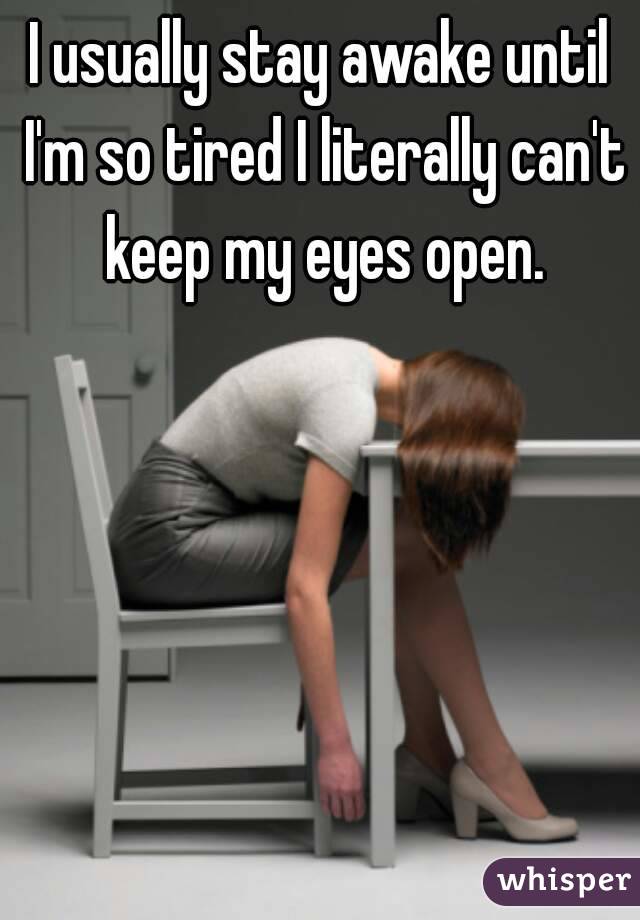 This mid-afternoon drop in energy levels is linked to the brain's circadian rhythm and is 'hard wired' into the human body. Preventing this drop in energy may be impossible, but there are ways to reduce the slump, including:
This mid-afternoon drop in energy levels is linked to the brain's circadian rhythm and is 'hard wired' into the human body. Preventing this drop in energy may be impossible, but there are ways to reduce the slump, including:
**This information was adapted from the 'Go for your life' campaign with permission by the Victorian Government, Melbourne, Australia
Links
Last Updated: November 4, 2013
Many cases of tiredness are due to stress, not enough sleep, poor diet and other lifestyle factors. Try these self-help tips to restore your energy levels.
Try these self-help tips to restore your energy levels.
If you feel you're suffering from fatigue, which is an overwhelming tiredness that isn't relieved by rest and sleep, you may have an underlying medical condition. Consult a GP for advice.
A good way to keep up your energy through the day is to eat regular meals and healthy snacks every 3 to 4 hours, rather than a large meal less often.
Read more about healthy eating.
You might feel that exercise is the last thing on your mind. But, in fact, regular exercise will make you feel less tired in the long run, so you'll have more energy.
Even a single 15-minute walk can give you an energy boost, and the benefits increase with more frequent physical activity.
Start with a small amount of exercise. Build it up gradually over weeks and months until you reach the recommended goal of 2 hours 30 minutes of moderate-intensity aerobic exercise, such as cycling or fast walking, every week.
Read more about starting exercise.
Find out the physical activity guidelines for adults.
If your body is carrying excess weight, it can be exhausting. It also puts extra strain on your heart, which can make you tired. Lose weight and you'll feel much more energetic.
Apart from eating healthily, the best way to lose weight and keep it off is to be more active and do more exercise.
Read more about how to lose weight.
Many people don't get the sleep they need to stay alert through the day.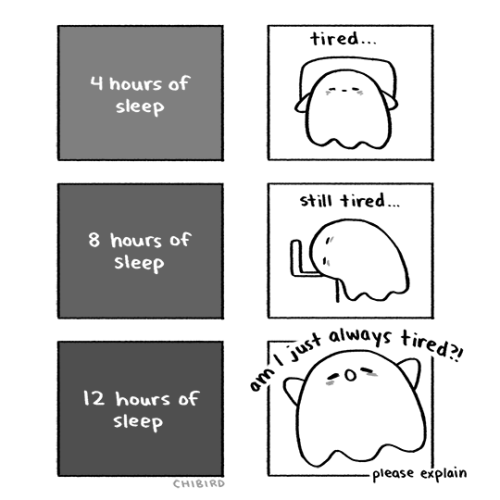
The website of the Royal College of Psychiatrists has information on sleeping well.
Tips for sleeping well include:
Stress uses up a lot of energy. Try to introduce relaxing activities into your day. This could be:
Whatever relaxes you will improve your energy.
Read more about how to relieve stress.
There's some evidence that talking therapies such as counselling or cognitive behavioural therapy (CBT) might help to fight fatigue, or tiredness caused by stress, anxiety or low mood.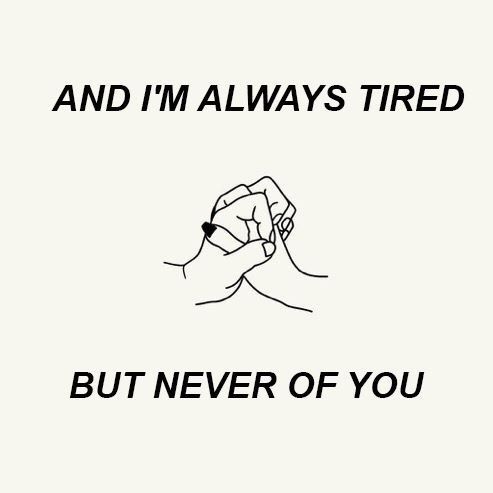
See a GP for a referral for talking treatment on the NHS, or for advice on seeing a private therapist.
The Royal College of Psychiatrists recommends that anyone feeling tired should cut out caffeine. It says the best way to do this is to gradually stop having all caffeine drinks over a 3-week period.
Caffeine is found in:
Try to stay off caffeine completely for a month to see if you feel less tired without it.
You may find that not consuming caffeine gives you headaches. If this happens, cut down more slowly on the amount of caffeine that you drink.
Although a couple of glasses of wine in the evening can help you fall asleep, you sleep less deeply after drinking alcohol. The next day you'll be tired, even if you sleep a full 8 hours.
Cut down on alcohol before bedtime. You'll get a better night's rest and have more energy.
The NHS recommends that men and women should not regularly drink more than 14 units a week, which is equivalent to 6 pints of average-strength beer or 10 small glasses of low-strength wine.
Try to have several alcohol-free days each week.
Read more about how to cut down on alcohol.
Sometimes you feel tired simply because you're mildly dehydrated. A glass of water will do the trick, especially after exercise.
Read about healthy drinks.
128,136
Know Yourself
A happy life is a building with three dimensions: material, interpersonal and emotional. In other words, to be a happy person, you need to be able to achieve your goals, while maintaining a reputation and good relations with people and without sacrificing inner harmony.
People have always known that finding happiness is far from easy. Aristotle taught: "The wise man does not seek pleasure, he seeks the absence of pain." And the French writer Jules Renard wrote in his "Diary" that "happiness is when misfortune is silent." What should be done in order not to feel unhappy?
Here are a few tips, or rather hints, which already contain a whole program of actions ...
Not everything is so simple. As the famous French philosopher Alain wrote: “You need to want to be happy and make efforts for this.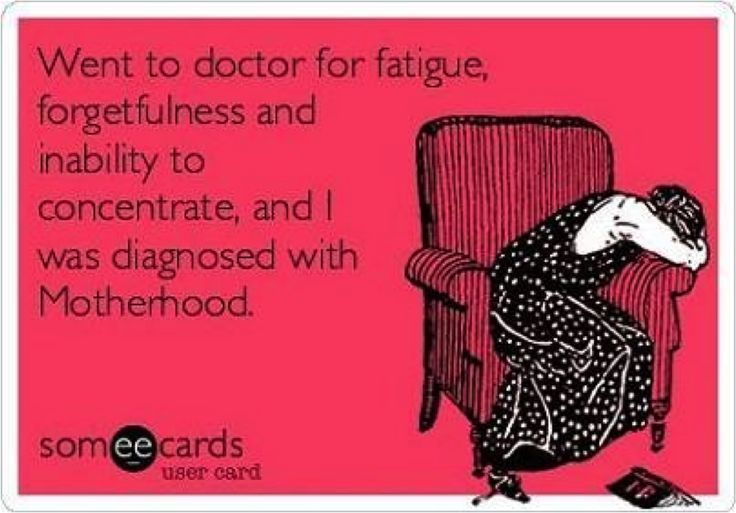 If you stand in the pose of an impartial observer and keep the doors open, waiting for happiness to enter them, then sadness will enter them.
If you stand in the pose of an impartial observer and keep the doors open, waiting for happiness to enter them, then sadness will enter them.
It is always easier to surrender to the power of misfortune - this requires less expenditure of psychological energy from us. And in order to prolong well-being, on the contrary, efforts are needed. In general, people differ from each other in how they are able to feel happy, but some factors are common to the entire human race: it seems that evolution favors the development of negative emotions, since they increase the chances of survival of the species.
Fear urges us to flee or fight, anger frightens opponents or rivals, sadness evokes sympathy...
However, nature, having taken care of our survival, did not care at all about the quality of our life. Positive emotions are much less diverse, less stable, and more "expensive" in terms of psychological energy.
Since negative emotions arise only from time to time, do not last long and do not interfere with our daily life too much, one would expect them to pass by themselves.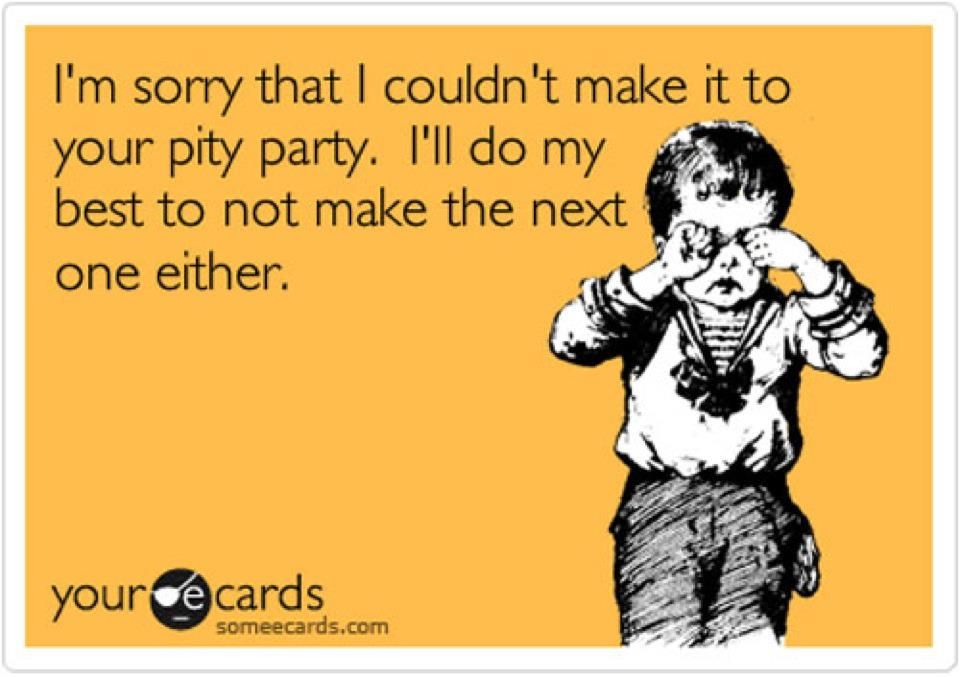 But "flirting" with misfortune, as was customary among the romantics of the 19th century, is not safe, and today psychology is beginning to better understand this risk.
But "flirting" with misfortune, as was customary among the romantics of the 19th century, is not safe, and today psychology is beginning to better understand this risk.
Having given free rein to negative emotions, we prolong them. Previously, people believed in a kind of catharsis: for example, if you complain to someone, you can alleviate your suffering. In fact, it is often the other way around: constant and unanswered complaints can make the complaining victim of life circumstances. And misfortune feeds on itself: the more we succumb to it, the longer it will last.
Having surrendered to the power of unhappiness, we doom ourselves to the subsequent return of negative emotions
Moreover, if we surrender to the power of unhappiness, then a negative emotion limited in time (at the moment we feel unhappy) gradually develops into a stable negative attitude (we have an unhappy life).
And finally, in this way we doom ourselves to the subsequent return of negative emotions: it has long been well known about depression that it relapses very often, but now we know that an ordinary sad mood also tends to return.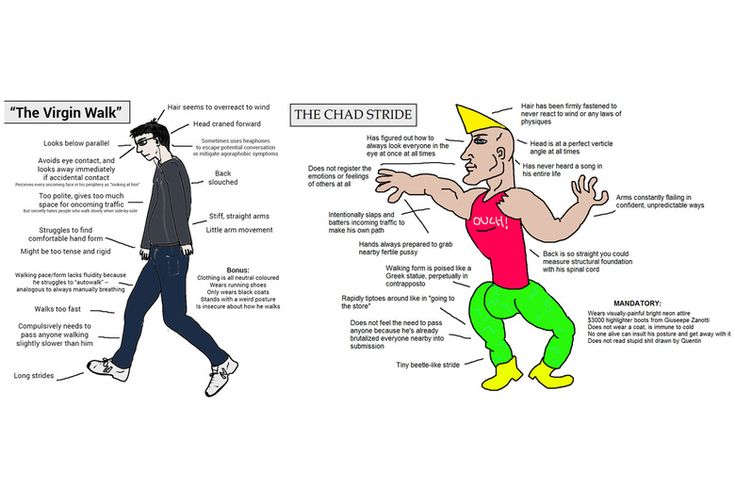
In reality, thousands of people refute this idea with their behavior. Most anxiety and depression sufferers do the opposite. The worse they are, the more they run themselves (stop seeing friends, give up their hobby), and the more they run themselves, the worse they get. There is a vicious circle.
Doing what you love when you have problems is not at all the most obvious way out of the situation, because we lose the desire for this. However, a lot of work shows that this desire must be awakened by making an effort (as in the case of a stalled engine that needs to be started again).
Just don't be mistaken about the ultimate goal: when we feel bad, the purpose of pleasant activities is not to make us happy, but to prevent unhappiness from growing and taking root within us.
Reflecting on happiness, Gustave Flaubert wrote: "Have you ever thought how many tears have been shed because of this terrible word? Without it, we would sleep more peacefully and we would have an easier life.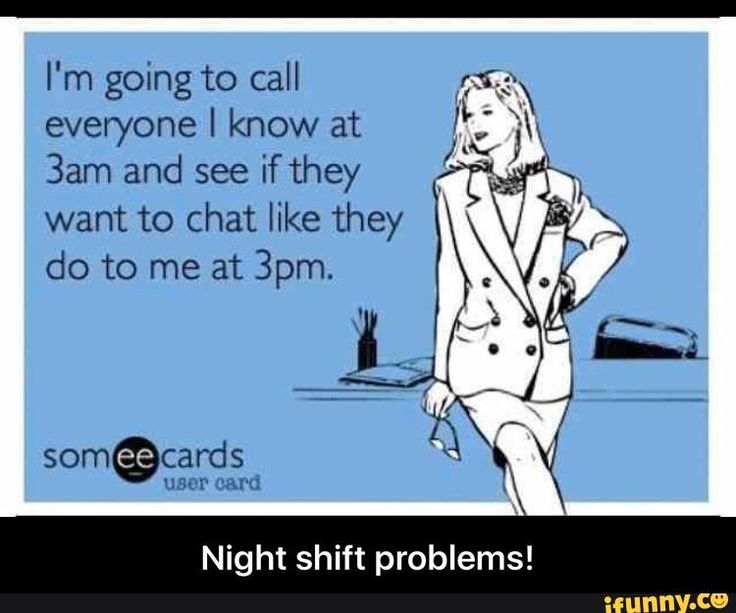 You should not understand the writer too literally, but nevertheless ... The search for happiness should not become an obsessive state for us, and the right of every person to happiness - written down, by the way, in the US Constitution - should not turn into an obligation to be happy at all costs became.
You should not understand the writer too literally, but nevertheless ... The search for happiness should not become an obsessive state for us, and the right of every person to happiness - written down, by the way, in the US Constitution - should not turn into an obligation to be happy at all costs became.
We cannot avoid encountering misfortune, but it is in our power to stop being afraid of this encounter and benefit from it live, or even necessary, when it prompts us to face unpleasant truths.We cannot avoid meeting with misfortune, but it is in our power to stop being afraid of this meeting and benefit from it.
5. Savor moments of happiness
The best (and also the most pleasant) weapon in the fight against misfortune is to derive as much pleasure as possible from those happy moments that fate gives us. An excellent vaccine against feeling unhappy is to enjoy happiness by trying to make this feeling stronger, more powerful, brighter.
![]()
Perhaps the disease will not pass you by, but it will pass in a mild form! As always, this is easy to say, but not so easy to do. The contemporary French philosopher André Comte-Sponville talks about how incredibly "it's hard to be happy when you're doing well." Let's not wait until the vicissitudes of life remind us that life can be wonderful, and make us regret that we did not manage it better ...
And here we come to the most ancient and wisest advice of philosophers: carpe diem (“seize the moment”), rejoice in what you have today.
6. Think about your worries, but don't obsess over them
Research into the psyche of anxious people shows that they constantly turn thoughts about troubles in their heads, but, paradoxically, this does not help them find a way out of the situation. The fact is that a feeling of anxiety is needed in order to sound an alarm, to draw our attention to the problem. It is not at all a way of perceiving the world or solving our problems.

This is why one of the goals of psychotherapy, especially cognitive therapy, is to teach people to see their misfortunes as problems to be solved rather than as a curse. In this case, the so-called "Socratic method" is used, which consists in asking tough questions about our anxieties: what is relevant to the facts, and what follows from my interpretation of events or my expectations? Does it help that I'm constantly worried? What is my disaster scenario? What is the probability that it will happen to me? And so on.
The method is harsh but effective.
7. Don't Cultivate Hostile Emotions
Many of our misfortunes come from giving too much space to so-called hostile emotions. These emotions are often very strong and directed at certain people (anger, bitterness, jealousy, etc.). Most often, they develop because we prioritize the need to prove ourselves right (“They are wrong, they should be punished”), while sacrificing our desire to feel good (“I am the first to suffer because of this, so think about what I can do useful, and then switch to something else").

In other cases, negative emotions are explained by the irritation that we experience in relation to human imperfection. These emotions make us look at the world and its inhabitants captiously or cynically: “Well, if she considers herself a beauty…”
Lack of goodwill often indicates that a person is bad, and is always a source of unhappiness.
Photo source: Getty Images
New on the site0003
Test: Which emotion from the cartoon "Inside Out" determines your behavior?
Why men become unbearable after 40
“A psychological test showed that I have latent schizophrenia”
Beatings and circumcision: sisters from Dagestan told why and how they ran away from their family
Post-war PTSD: what it is, how it manifests itself and who has it
Passive aggression on the Internet: how to recognize and resist
If the opponent is stronger: 11 sports strategies - use them in life
DO YOU WAKE UP TIRED? THIS MAY BE A SYMPTOM OF A DISORDER!
No insomnia, sleep for 7-8 hours, but still wake up exhausted and tired? Well, “congratulations” - with a high degree of probability you are faced with a phenomenon that is popularly called “tiresome sleep syndrome”.
It can be a symptom of a range of neurological, psychiatric, and psychological disorders.
Ideally, when a person wakes up in the “REM” phase, then he will feel alert and rested.
Why does it happen that the body sleeps but does not rest? Scientists are still inclined to think that the whole thing is in violation of the sleep cycle. There are two main phases of human sleep: slow and fast (during the first, brain activity slows down, and during the second it accelerates again). These two phases replace each other, form cycles. Ideally, when a person wakes up in the “REM” phase, then he will feel alert and rested. With certain disorders, a person wakes up at the onset of the slow phase - this makes him feel tired and sleepy when he wakes up (and no matter how long he slept).
See also
What is depression?But what are the disorders that cause such failures? Specialists of the Matspen clinic most often encountered the fact that sleep disturbance appears against the background of chronic depression.
When a person feels internal discomfort, dissatisfaction and a sense of anxiety, it is difficult to count on healthy sleep. In most cases, these disorders provoke insomnia, but sometimes they cause "tiresome sleep syndrome."
Another "disturber" of sleep is anxiety. These may be some external factors that do not allow you to completely relax, physical overstrain, anxiety. For example, restless sleep syndrome is often observed in pregnant women who are afraid to take the wrong position and harm the fetus. In some cases, this anxiety causes them to constantly wake up at night to take the desired position, and sometimes they still fall asleep, but remain physically tense.
With the syndrome of "tiring sleep" only a specialist will help.
How to cope with this syndrome? It is useless to take sleeping pills - this is not the case, you can only aggravate the situation. With the syndrome of "tiring sleep" only a specialist will help.
